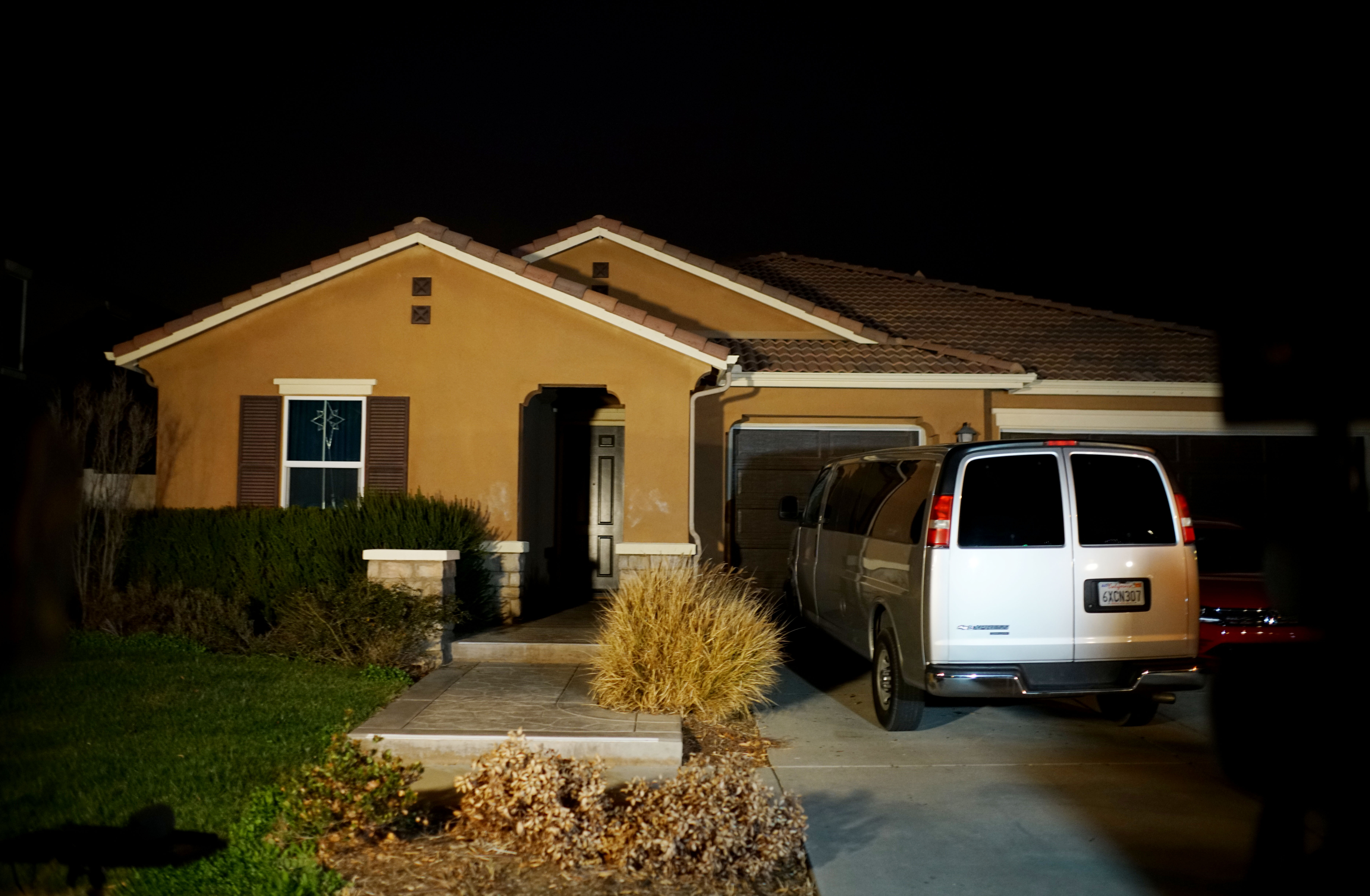The sickening danger of home-schooling
It's time we regulated home-schools


David and Louise Turpin ran a sickening school in Perris, California.
It had just six students, all of them children of the school's sole teacher (Louise) and its principal (David), and all of them held against their will — shackled, tortured, and horribly malnourished in their putrid family home, which doubled as their school and which they shared with seven former students, older offspring of the same couple, who were treated in the same appalling way.
Now obviously, this is an exceptional case. The vast majority of parents who home-school — most of whom are conservative or fundamentalist Protestants — do not abuse their children. Most standardized forms of assessment show that, on average, home-schooled kids acquire the same cognitive skills and learn much the same basic information as those who attend school outside the home. Indeed, home-schoolers tend to score at or slightly above the national average on the SAT and similar tests.
The Week
Escape your echo chamber. Get the facts behind the news, plus analysis from multiple perspectives.

Sign up for The Week's Free Newsletters
From our morning news briefing to a weekly Good News Newsletter, get the best of The Week delivered directly to your inbox.
From our morning news briefing to a weekly Good News Newsletter, get the best of The Week delivered directly to your inbox.
Yet it is also the case that home-schooling sometimes serves as an easy cover for stomach-churning cases of cruelty and mistreatment — some of them much worse than what took place in the Turpins' torture-chamber of a home. From 2000 to 2017, there have been more than 100 non-accidental fatalities of children in home-school settings. We have reason to believe that the lion's share of those deaths were at least partially a function of the almost complete lack of regulatory oversight of their education.
As I explained in my book The Religious Test and as historian Jeremy Young noted in an important tweetstorm inspired by news of the Turpin family abuses, home-schooling was once almost universally prohibited. When the movement began in the 1970s, nearly every state expected children to attend school outside the home, sometimes explicitly, through mandatory attendance laws, and sometimes by implication, through teacher-certification requirements.
By 1992, the Home School Legal Defense Fund and its lobbying arm (the Congressional Action Program) had persuaded 25 states to change these laws. The following year brought an even bigger victory, with the Michigan Supreme Court recognizing a right to home-school under the First Amendment, definitively knocking down teacher-certification requirements. Today there are effectively no legal obstacles to home-schooling anywhere in the United States.
Young calls this lack of regulatory oversight a "massive legal loophole" permitting child abuse. He's right. In many states, parents need merely file an affidavit stipulating that they are running a school for their own children in order to ensure that the kids never interact with the wider world again. In many other states, not even this minimal registration with the government is required: Parents can simply disconnect from the broader community and do whatever they want. Again, in the vast majority of cases, home-schooling parents are surely acting in what they believe is their children's best interest. But as the Turpin case shows, sometimes what parents do with this freedom is appalling — and appallingly difficult to detect. (What the Turpins were allegedly doing in their home was brought to the attention of authorities only when one of the children managed to escape through a window and call 911 from a cell phone.)
A free daily email with the biggest news stories of the day – and the best features from TheWeek.com
From the beginning, liberal politics has swung between opposing extremes — sometimes aiming to protect individuals and groups from injustice perpetrated by government, and at others working to protect individuals from injustice perpetrated by other individuals and groups. In recent decades, the right has emphasized the first form of government-initiated injustice while the left has emphasized the second. It was a concern with the supposed persecution of religious conservatives and fundamentalists by the "secular liberalism" of government-run public schools that led Republicans to champion home-schooling in the first place.
They had a point — and they still do. Public schools shouldn't be in the business of using a comprehensive secular ideology to stamp out all vestiges of traditionalist religious belief in their students' minds. As long as that's what's happening in public schools, such believers will have a compelling case in favor of home-schooling.
But that doesn't mean that such schooling should be completely unregulated. There can and should be greater oversight. As Young suggests, annual checks by a state government employee, empowered to look for signs of abuse and evidence that kids are actually being educated, would seem to be a minimum required by a commonsense concern for the well-being of the children involved. Sure, the home-school lobbyists will object. But then they will find themselves in the awkward position of defending the right of the Turpins to torture their kids undetected.
I suspect that this may be a bit much for most Americans, even in an age when regulation has become a dirty word.
Damon Linker is a senior correspondent at TheWeek.com. He is also a former contributing editor at The New Republic and the author of The Theocons and The Religious Test.
-
 Climate change could lead to a reptile ‘sexpocalypse’
Climate change could lead to a reptile ‘sexpocalypse’Under the radar The gender gap has hit the animal kingdom
-
 7 hotels known for impeccable service
7 hotels known for impeccable serviceThe Week Recommends Your wish is their command
-
 6 inviting homes with event spaces
6 inviting homes with event spacesFeature Featuring a Vermont compound with an airstrip and Virginia farm with a party barn
-
 'Once the best in the Middle East,' Beirut hospital pleads for fuel as it faces shutdown
'Once the best in the Middle East,' Beirut hospital pleads for fuel as it faces shutdownSpeed Read
-
 Israeli airstrikes kill senior Hamas figures
Israeli airstrikes kill senior Hamas figuresSpeed Read
-
 An anti-vax conspiracy theory is apparently making anti-maskers consider masking up, social distancing
An anti-vax conspiracy theory is apparently making anti-maskers consider masking up, social distancingSpeed Read
-
 Fighting between Israel and Hamas intensifies, with dozens dead
Fighting between Israel and Hamas intensifies, with dozens deadSpeed Read
-
 United States shares 'serious concerns' with Israel over planned evictions
United States shares 'serious concerns' with Israel over planned evictionsSpeed Read
-
 Police raid in Rio de Janeiro favela leaves at least 25 dead
Police raid in Rio de Janeiro favela leaves at least 25 deadSpeed Read
-
 Derek Chauvin's attorney files motion for new trial
Derek Chauvin's attorney files motion for new trialSpeed Read
-
 At least 20 dead after Mexico City commuter train splits in overpass collapse
At least 20 dead after Mexico City commuter train splits in overpass collapseSpeed Read
